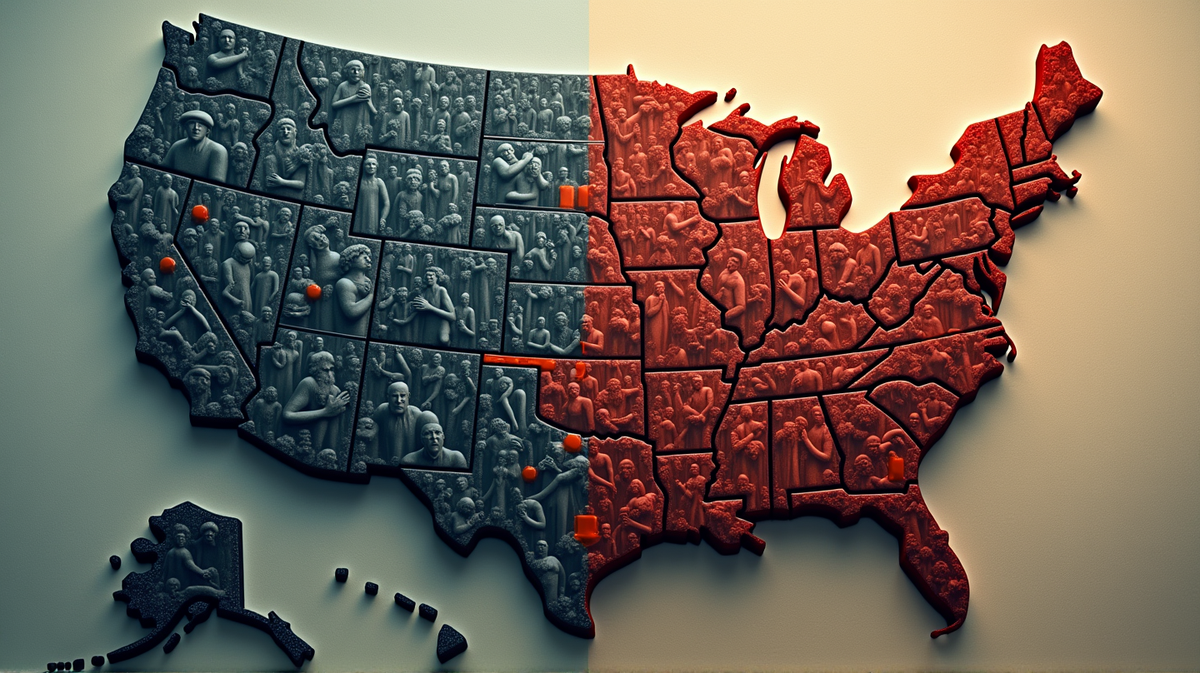America in Crisis: Unraveling the Threads of Political and Social Polarization
Explore how deep political and social polarizations are impacting American society. Learn about shifting party loyalties, demographic changes, and future challenges.

With American society caught in the grips of unprecedented polarization, the nation finds itself at a crossroads, where political and social divisions cut through every layer of public life. From shifting party loyalties that stretch back decades to demographic transformations reshaping the electorate, the current moment presents both challenges and opportunities for redefinition.
Historical Roots of Division
American political parties have undergone seismic shifts over the decades, changing their identities in response to historical events and policy decisions. One of the most vivid examples is the realignment of African American voters. Originally staunch Republicans, African Americans began shifting towards the Democratic Party during the New Deal era, with the Civil Rights Movement acting as a catalyst for full transformation. This realignment, underscored by landmark legislation like the Civil Rights Act, defined a new era that continues to resonate through today’s elections.
The Southern Strategy and Cultural Shifts
In the wake of the Civil Rights Movement, white Southern voters began exiting the Democratic Party. Richard Nixon’s Southern Strategy capitalized on cultural tensions, emphasizing states’ rights and coded racial appeals. This realignment, accelerating through issues like abortion rights and religious conservatism, has transformed the South into a Republican bastion.
Complex Evolution of Hispanic Voters
Hispanic Americans reflect the complexity of electoral realignments, with voting patterns influenced by national origin, age, and regional factors. As social issues and economic concerns take center stage, both major parties find themselves negotiating an intricate landscape. The Proposition 187 controversy in California, which sought to deny services to undocumented immigrants, marks one of several key events that alienated Hispanic voters from the Republican agenda.
The Education and Class Divide
The growing gap between educated and non-educated voters has vastly restructured modern American politics. As the economy leans increasingly towards knowledge-based industries, college graduates now predominantly support Democrats, solidifying urban-suburban areas as Democratic strongholds. Conversely, Republicans have gained ground among non-college educated whites, who express support for populist initiatives championed by recent leaders.
Navigating the Future of Democracy
As America stands poised on the edge of another major political reconfiguration, leaders and constituents must grapple with potential solutions to bridge these divides. Maintaining democratic norms, constitutional principles, and peaceful conflict resolutions remains vital for nurturing a thriving democracy. Recognizing the depth of these patterns while striving for understanding could pave the way for a more cohesive national journey.
According to The American Bazaar, these shifts may inevitably influence the future trajectory of American politics, testing the fabric of the nation in profound ways. While history has always favored those adaptable to change, the most defining moments may yet lie ahead in how America chooses to confront and resolve its enduring disparities.





